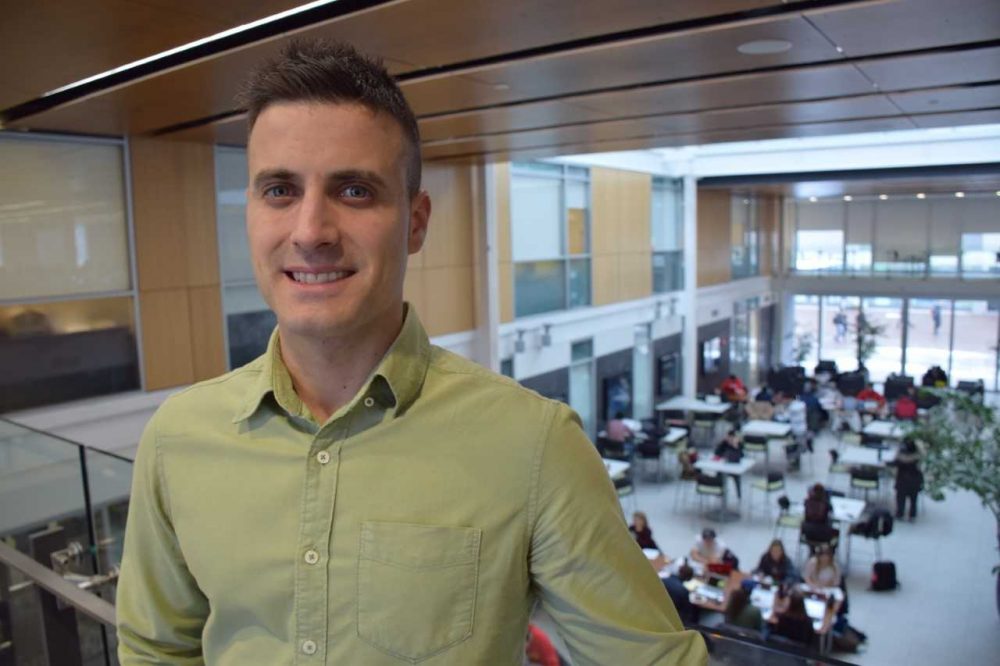
Two University of Guelph researchers will receive grants totalling nearly $1.3 million from the Walmart Foundation.
Both grants will support food waste reduction projects by U of G professors Mike von Massow, Department of Food, Agricultural and Resource Economics, and Mario Martinez, School of Engineering.
Cutting household food waste and developing a nutritional supplement from waste fruit that would otherwise end up in the compost bin are the focus of the two projects.
“It’s very exciting because this funding will allow us to take the next step in our research towards reducing the amount of food waste going into our landfills,” said von Massow, who will receive more than $705,000. “It couldn’t happen without this gift from the Walmart Foundation.”
Along with Profs. Kate Parizeau, Department of Geography, and Jess Haines, Department of Family Relations and Applied Nutrition, von Massow aims to evaluate the effectiveness of policy interventions to reduce household food waste across Canada.
“The interventions could range from a communications campaign to providing culinary classes aimed at teaching people how to make use of leftovers and other food that could potentially be thrown out,” said von Massow. “We conduct food waste audits before the intervention and will then conduct a second audit to see if the intervention strategies are working. We do this in partnership with municipalities who are keen to reduce the cost of food waste.”
Martinez will receive more than $575,000 to develop a method for turning food waste into a value-added supplement that can be incorporated into foods. Using cutting-edge processing, he will manipulate food waste and other edible materials at the molecular level through high temperature, pressure and shear force. The resulting ingredients, when incorporated into foods, will slow carbohydrate digestion and glucose absorption, and ultimately reduce the prevalence of metabolic syndrome diseases.
“As much as one-third of the food produced annually for human consumption is lost or wasted,” said Martinez. “With this research, we expect to improve the sustainability of food systems, boost local and global food availability, increase profits for producers and decrease prices for consumers. This project not only targets the reduction of waste by using food that would be thrown out, but also targets the prevention and intervention of diseases such as diabetes, obesity and others related to the absorption of too much sugar.”

Both projects are part of the Guelph Food Waste Project involving researchers across campus who aim to reduce the environmental impact of food systems and improve food security.
“The Walmart Foundation is excited to support the work of leading University of Guelph researchers to reduce food waste on multiple fronts,” said Kathleen McLaughlin, president of the Walmart Foundation and chief sustainability officer for Walmart. “For over 10 years, through philanthropic and business initiatives, Walmart has been working to reduce food waste and strengthen charitable programs to accelerate food recovery and get food to those who need it most. Today we commit to accelerating progress in Canada. We hope this grant, combined with additional grants we are making to other leading non-profits, will catalyze collective action to reduce food waste all along the food chain, from farm to fork.”
Funding of these two projects is part of the Walmart Foundation’s $19-million commitment to prevent food waste and support food banks.
The program builds on the retailer’s commitment to reduce waste in its own operations and achieve zero waste in key markets, including Canada, by 2025.